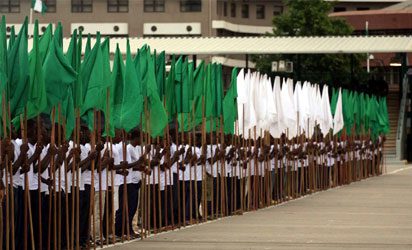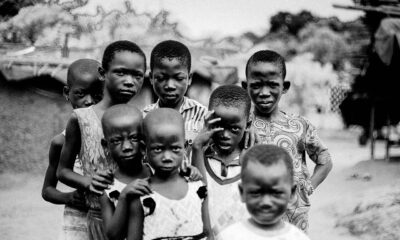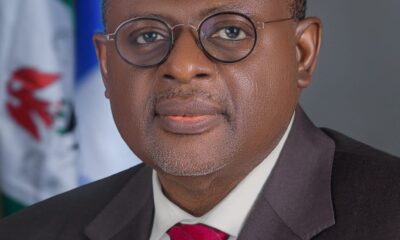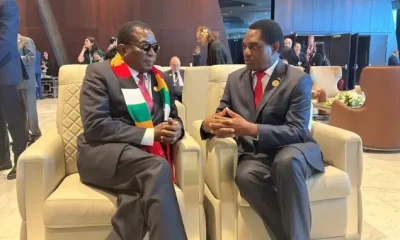Democracy & Governance
Nigeria @63: Which Way Forward? -By Nurudeen Dauda
One must concede to the fact that nation building is not a one day job . In my observation, Our biggest stride so far despite the ups and downs is that the country is still called Nigeria after sixty three years of its independence.

To begin with, today marks an additional year to our dear country, in my view, a day like this should be a day for “sober reflection” instead of a day for “celebration” and or a day for “merriment”. As a country and as a people let us “reflect” on the journey thus far and see where we have gone wrong and make “amends” and or “retrace” our steps. At sixty three years of independence of our dear country we are certainly not at “where” we should be in view of our both abundant human and natural resources.
Basic needs is still a major problem to a greater number of Nigerians. The issue of national unity which is very fundamental to Nation-hood remains a problem. Despite our diversities we ought to achieve a nation-state status which continue to elude us. National unity is very necessary for national development which has continue to be a mirage to us from pre- independence period to the post Independence era and to even the present time. A greater number of Nigerians are still ethnic, and regional patriots instead of Nigerian patriots. There is a consensus that Nigeria is still not at “where” it should be.There are a lot of arguments put forward by some analysts on “WHY” our dear country is not at “where” it should be which include: ethno-religious diversities, the structure of the federation and leadership question.
Firstly, on the ethno-religious diversities, can we say in all honesty that is it really the issue in view of the available evidences of countries with more ethno- religious diversities but have achieved a lot? As a people as a country we must be aware of the fact that India is one of the most multi-ethno- religious countries in the world. India has more than one thousand languages and is the most multi religious country in the world yet the country is progressing rapidly. It is erroneous to believe that our diversities is a “cog” in the wheel of our country’s progress as well as peaceful co-existance. Ethnic homogenity is not a guarantee for peace or progress. Somalia as a country has people with same religious sect and ethnic group yet is not the most developed country in the world. The country has been having a perrenial civil war for over 20 years.
It is sad to note that we use our ethno-religious diversities as an excuse for our state of affairs at a time when countries with more diversities are progressing. Our politicians use our ethno-religious diversities as a tool for political manipulation of the masses.The truth of the matter is that instead of using our diversities as an excuse for underdevelopment and or stagnation which often trigger the desire for disintegration we must as a country and as a people find a way of uniting our people for the needed national development. Unless and until we are able to unite our country which is very fundamental for national development we will continue to remain underdevelop. Diversity should never be an excuse for disunity. It is our duty as a country to device a means of uniting our people.
Secondly, on the issue of structure, some Nigerians and or some sections of the country have been very vocal on this line of thought. The promoters of this thought believe that the “structure” of the Nigerian federation is the very reason for our slow progress and or stagnation. They often argue that the centre and or the federal government is too powerful. In the same vein, this school of thought often advocate for re-structuring as the solution to the problem. The advocates of re-structuring are of the view that re-structuring the country will facilitate our national development.
However, it is important to note that, the problem with the term re-structuring is that it does not have a “universal” meaning or “definition” even among its advocates.It means different thing to different people. For now at least, it means many things ; such as: Resources control, Devolution of powers, Regional autonomy, and or lean government etc. It is now often being used by our politicians to whip political sentiments for electoral gains. If at all is the issue, Nigerians from all sections of the country need to be brought onboard to have a national conversation in order to reach at a “consensus” on the areas to be re-structured. Without a consensus on the issue even if it is the problem of our federation it will never see the light of day. As a country and as a people we need to “debate” and agree on the issue.
Thirdly, on the leadership question, many Nigerians are of the view that at all levels leadership remains a very serious “cog” in the wheel of our progress. No doubt we really need to get it right on leadership just as we also need to get it right on the followership. In my thought, our leadership recruitment process needed much to be desired. Our politicians at all levels often “exploit” our diversities negatively in the struggle for acquiring political power to which the end results needed much to be desired. Our political process is highly monetize where the highest bidder rather the most competent often emerge as candidates for elections in all political parties.Neither delegates at primary elections levels nor the electorates at the general elections help matters with quest for money for support. There is no gainsaying the fact that we have dearths of leaders with patriotism, sacrifice, vision, commitment, doggedness, selflessness, purposefulness, and result-orientedness.In my thought , for us to get to the promise land, we must continue to push for leaders with the abundance of the aforementioned qualities at all levels through credible election. The electorates must be selfless, and objective in making their choices during elections regardless of ethnic, religional and religious consideration.
However, development is not only a function of leadership alone, but also that of patriotic followership. Our dear country needs patriotic citizens to play their on part to enable us get to the promise Land. No country will develop without patriotic citizens. Leaders are products of followership. The followership most resist all sorts of manipulations by politicians either through the use of “money” or ethno-religious sentiments. We must tailored our electioneering campaings on “issues” rather than “sentiments” to enable us make right choices if we must get it right.
As a country we need reliable statistics, development plan, and policy consistency for us to move forward.Our leaders must focus on reliable statistics, strategic development plan, and policy consistency which are seriously lacking. Our patriotism from our leadership to the followership needed much to be desired. Patriotism is very essential for nation building.
One must concede to the fact that nation building is not a one day job . In my observation, Our biggest stride so far despite the ups and downs is that the country is still called Nigeria after sixty three years of its independence.
May God bless Nigeria!










